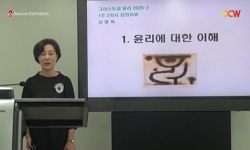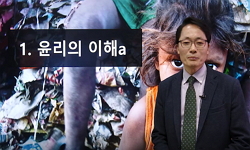In this article, I intend to focus on embryonic stem cell research insofar as these procedures are used in the creation of embryonic stem cells, and how these areas of research relate to ideas concerning respect for human life and dignity, and its tre...
http://chineseinput.net/에서 pinyin(병음)방식으로 중국어를 변환할 수 있습니다.
변환된 중국어를 복사하여 사용하시면 됩니다.
- 中文 을 입력하시려면 zhongwen을 입력하시고 space를누르시면됩니다.
- 北京 을 입력하시려면 beijing을 입력하시고 space를 누르시면 됩니다.
부가정보
다국어 초록 (Multilingual Abstract)
In this article, I intend to focus on embryonic stem cell research insofar as these procedures are used in the creation of embryonic stem cells, and how these areas of research relate to ideas concerning respect for human life and dignity, and its treatment in Korean jurisprudence. Then, this Article seeks to advance the discussion of the proper role of ethics and morality in the patent system by examining existing models of incorporating ethics into the context of patentability. In particular, a detailed examination of the European system, is undertaken to determine whether morality can be adequately considered within patent law. This Article discusses the existing framework for considering morality within the EPC, including interpretation of article 53(a) by the European Patent Office (EPO) and its related courts, and considers the place of morality within future frameworks of patentability. In particular, the Biotechnology Directive is considered and applied to the Newman application to illustrate interpretative difficulties with the Directive. Moreover, this article addresses the implications of the existing frameworks, including the difficulties in their creation and application, for Korea.
From this ethical perspective, I will review what the legal issues are involved in research using human embryostem cells under Korean patent law system.
동일학술지(권/호) 다른 논문
-
특허권의 역사적 변화와 자연권적 재산권으로서의 특허권의 변화
- 한국지식재산연구원
- 나종갑 ( Na Jongkhab )
- 2004
-
특허권 강화와 지식의 사유화 -미국의 특허개혁을 중심으로-
- 한국지식재산연구원
- 서환주 ( Seo Hwan Joo )
- 2004
-
- 한국지식재산연구원
- 최근진 ( Choi Keun Jin )
- 2004
-
- 한국지식재산연구원
- 정차호 ( Jung Chaho )
- 2004




 KISS
KISS






